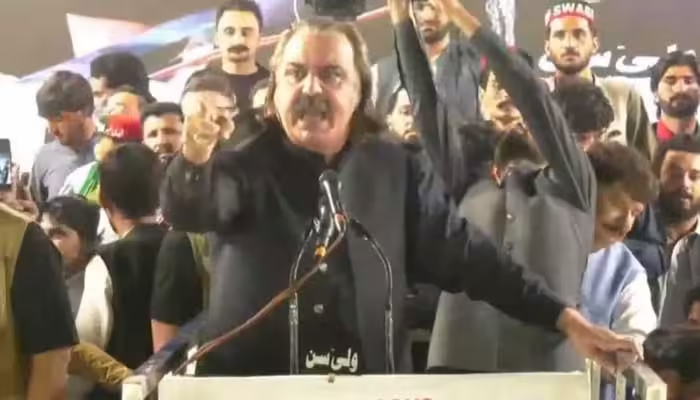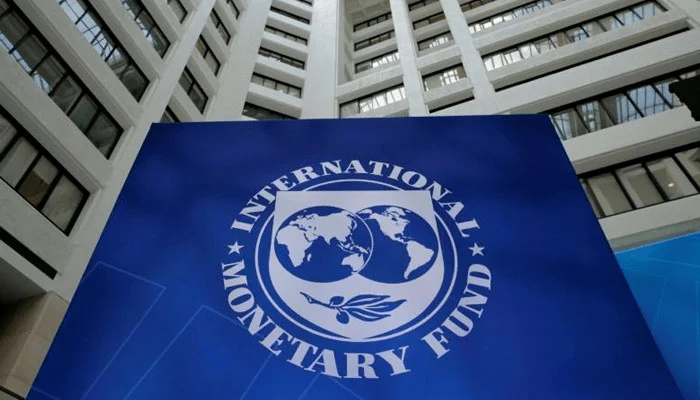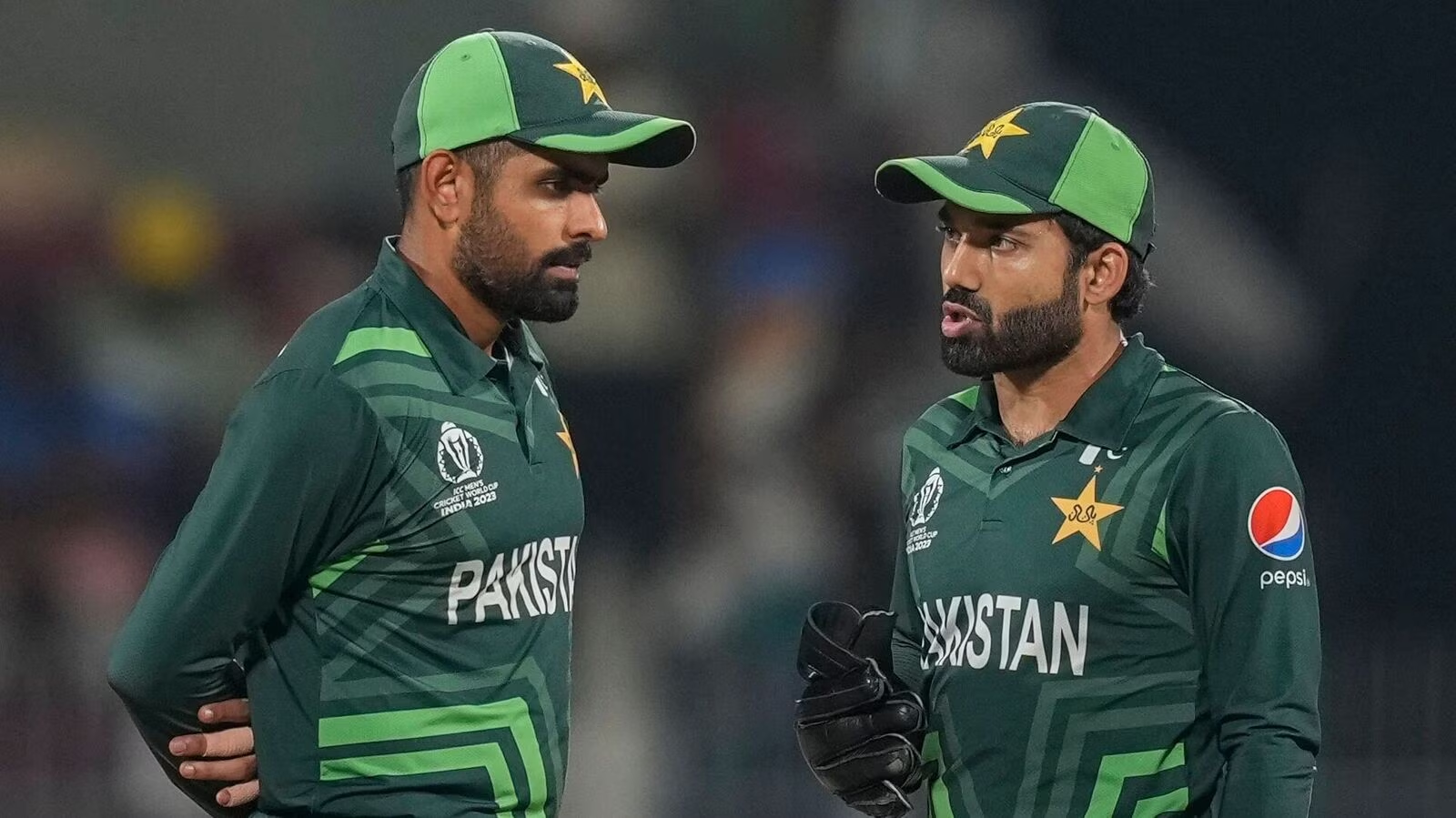In a passionate display of commitment to the cause of his party, Khyber Pakhtunkhwa (KP) Chief Minister Ali Amin Gandapur has publicly declared his determination to secure the release of PTI founder Imran Khan. Speaking at a public rally in Swabi organized by Pakistan Tehreek-e-Insaf (PTI), Gandapur expressed his willingness to go to great lengths, even sacrifice lives, for Khan’s release. The rally, attended by PTI supporters, was held as part of a larger movement advocating for the “independence of the judiciary” and demanding the release of the former prime minister.
The KP chief minister addressed the crowd with fervor, emphasizing that their commitment to the PTI founder’s freedom would not waver. “Even if our lives are lost, we will not rest until the release of PTI founder,” he asserted to the gathered supporters. Gandapur’s speech echoed the sentiments of many PTI supporters who view Khan’s continued incarceration as unjust, portraying their struggle as one for “true freedom” and “justice.”
At the gathering, Gandapur underscored the idea that there is no genuine freedom without sacrifice, a theme resonating deeply within the ranks of the PTI. “There is no freedom without sacrifice,” he stated, calling on his fellow supporters to stay resolute in the face of adversity. Gandapur insisted that the PTI movement was a collective effort, bound by loyalty to Khan, whom he recognized as the sole decision-maker within the party.

Highlighting the determination of PTI supporters to secure Khan’s release, Gandapur spoke of a potential march on Islamabad, hinting that this march would not end until the PTI leader was free. He further assured his supporters that the movement had a clear direction and a well-thought-out strategy. Last week, Gandapur had indicated plans for what he referred to as a “final call,” which, he said, would be aimed at ousting the current government. “We are ready for a final call to get rid of this Form 47 government,” he had stated, referring to the government as illegitimate. This “final call” announcement came after Gandapur’s visit to Adiala Jail in Rawalpindi, where he met with Khan, who has been detained there since his conviction in the Toshakhana case.
During his visit to Adiala Jail, Gandapur expressed frustration over what he described as a betrayal of their peaceful attempts to protest. He remarked that despite PTI’s peaceful protests, party workers had faced torture and arrests at the hands of the authorities. Gandapur revealed that PTI leaders had now devised a new plan, indicating that their next steps would involve a stronger, more decisive response. “Shroud-clad PTI leaders and workers would take to the streets this time,” he announced, using the metaphor of wearing shrouds to signal their readiness to risk their lives if necessary.
Gandapur also mentioned that, following Khan’s directive, a date for protests would be announced in November. His words echoed the determination of a leader committed to Khan’s cause, as he vowed not to return home until Khan’s release. In an oath-like statement, he assured the gathered supporters of his unwavering dedication to this cause, urging unity and steadfastness among the PTI ranks. As a mark of commitment to the party’s democratic principles, he announced plans to conduct intra-party elections in the near future.
At the same gathering, PTI Chairman Barrister Gohar Ali Khan voiced strong support for the movement, framing the rally as a “referendum against the mandate-stealing government.” Gohar reiterated the party’s expectation that Khan would soon be freed, emphasizing that their struggle was not only for Khan’s release but also for preserving the independence of Pakistan’s judiciary. The PTI chairman shared the concerns of his followers, many of whom view Khan’s imprisonment as emblematic of broader issues within Pakistan’s political system.
Gohar also addressed the recent tragic events in Balochistan, specifically the suicide bombing at Quetta’s railway station that claimed the lives of at least 27 people and left 40 others injured. Expressing grief over the tragedy, he questioned the sustainability of Pakistan’s current political climate, asking, “How will politics move forward and peace be restored while keeping the PTI founder behind bars?” Gohar’s remarks highlighted the sense of urgency and discontent among PTI supporters, many of whom see the release of Khan as critical to Pakistan’s stability and progress.

Imran Khan’s arrest in August last year from his Zaman Park residence in Lahore has been the focal point of PTI’s protests. His conviction in the Toshakhana case marked the beginning of his legal troubles, as he now faces multiple cases, including the £190 million reference and additional charges related to the Toshakhana case. Khan, who has been incarcerated under better-class (B-class) facilities in Adiala Jail due to his status as a former prime minister, previously served time in Attock Jail before his transfer.
The former prime minister’s legal challenges have fueled intense public debate in Pakistan, with PTI members and supporters arguing that the cases against him are politically motivated. Khan’s supporters see him as a symbol of resistance against what they perceive as a politically biased legal system, and his continued detention has only strengthened their resolve to secure his release.
For PTI leaders and supporters, Khan’s imprisonment remains a powerful rallying point. The Swabi rally, the speeches of leaders like Gandapur and Gohar, and the plans for nationwide protests reflect PTI’s commitment to securing Khan’s freedom. The party’s calls for “independence of the judiciary” and the depiction of Khan’s struggle as one for “true freedom” continue to resonate deeply among the party’s base, mobilizing supporters across the country.
As Gandapur and PTI supporters prepare to escalate their movement, Pakistan’s political landscape faces a turbulent period. Whether the protests will achieve Khan’s release remains uncertain, but PTI’s unwavering commitment to this cause signals a determination to challenge the status quo, regardless of the obstacles they may encounter along the way.



